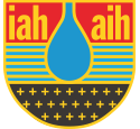News
-
Groundwater and not glacier melts sustain the Ganga during the hot summer months in India, according to the first ever comprehensive isotope study done by the Indian Institute of Technology-Roorkee (IIT-Roorkee). The study found that that the Ganga is not drying because of groundwater depletion but because of over-extraction, excessive... read more...
-
We are deeply saddened to learn of the passing of Lucy Lytton. Lucy was a Senior Water Resources Management Specialist with the World Bank, working mainly on groundwater in South Asia. Before this she worked with the Australian government and with the United Kingdom water industry. She undertook humanitarian support... read more...
-
Karst groundwaters are vital resources, providing drinking water to nearly 10% of the world’s population. However, human activities and global change have deteriorated the karst water quality and dependent ecosystems. This article looks at how scientists model contaminant transport, and future research directions. Find out more https://eos.org/editors-vox/groundwater-pollution-in-karst-regions-toward-better-models read more...
-
As the planet gets hotter and its reservoirs shrink and its glaciers melt, people have increasingly drilled into a largely ungoverned, invisible cache of fresh water: the vast, hidden pools found deep underground. A new study finds that the landmasses of the planet are drying. In most places there is... read more...
-
According to a recent UN-Habitat report, Kabul is facing an unprecedented water crisis. Groundwater levels have dropped significantly, putting more than 6 million residents of Kabul at serious risk. The report warned that local efforts alone won’t be enough to halt the downward spiral. Find out more https://english.news.cn/asiapacific/20250724/8971f131889046828560041ef2b46ca4/c.html read more...
-
Climate change is causing sea levels in the North Sea to rise. This poses a challenge for islands like Norderney at the German North-Sea coast, which have their own fresh water supply in the sandy subsoil. A “Freshwater Lens Walk” aims to bring the island’s freshwater lens to life –... read more...
-
Researchers modelled groundwater temperature trends from 2000 to 2100. They estimated that groundwater could warm by up to 3.5°C over the next 100 years. Find out more https://sciworthy.com/is-groundwater-heating-up/ read more...
-
Groundwater input to coral reefs directly affects water chemistry and triggers a cascade of changes in the coastal ecosystem, according to a new study led by University of Hawaiʻi (UH) at Mānoa oceanographers. Freshwater from land that flows into the ocean beneath the sea surface, termed submarine groundwater discharge, was... read more...
-
Le Journal Météo Climat explique pourquoi tenir le bulletin de l’état des nappes phréatiques en France est devenu une nécessité. C’est l’objet de la nouvelle météo de l’eau qui arrive à l’antenne ce 20 juin sur France Télévisions. Find out more https://www.franceinfo.fr/une-information-transparente-franceinfo/transparence-pourquoi-france-televisions-se-lance-t-elle-dans-une-meteo-de-l-eau_7268028.html read more...
-
As over half the population depends on groundwater during the dry season, experts and stakeholders at a national dialogue pushed for urgent regulatory action and policy to manage over-extraction, climate stress and fragmented data, which could pose serious challenges to the country’s water security in the future. Find out more... read more...



